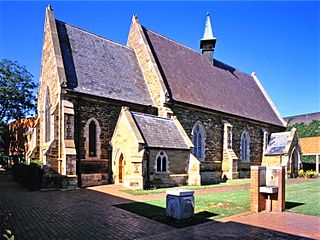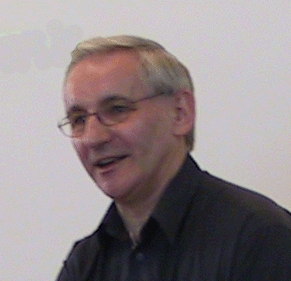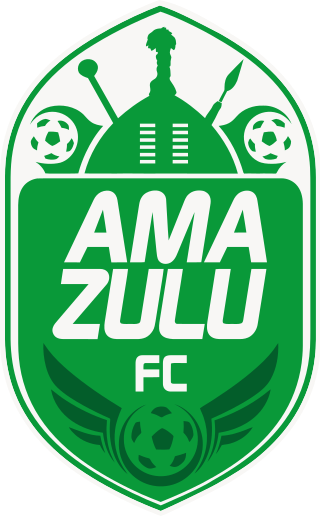
Zulu people are a native people of Southern Africa of the Nguni. The Zulu people are the largest ethnic group and nation in South Africa, with an estimated 13.56 million people, living mainly in the province of KwaZulu-Natal.

KwaZulu-Natal is a province of South Africa that was created in 1994 when the government merged the Zulu bantustan of KwaZulu and Natal Province.

Pietermaritzburg (; is the capital and second-largest city in the province of KwaZulu-Natal, South Africa after Durban. It was named in 1838 and is currently governed by the Msunduzi Local Municipality. The town was named after King Dingane's royal homestead uMgungundlovu. Pietermaritzburg is popularly called Maritzburg in Afrikaans and is often informally abbreviated to PMB. It is a regionally important industrial hub, producing aluminium, timber and dairy products, as well as the main economic hub of uMgungundlovu District Municipality. The public sector is a major employer in the city due to local, district and provincial government offices located here.

The Thembu are Xhosa people who were living in the Thembu Kingdom.
eKuPhakameni is a small town in KwaZulu-Natal, South Africa that was set out by one of the largest African Christian sects, the Nazareth Baptist Church. INkosi Isaiah Shembe, who founded the sect in 1911, bought land in the Inanda area for his church and called the town eKuPhakameni (place of spiritual uplift). Shembe who died in 1935 is buried at eKuPhakameni and the grave is regarded as a shrine. Large festivals are held here in January, April, July and September every year.
Inanda or eNanda is a township in KwaZulu-Natal, South Africa that is situated 21 km north-west of Durban. It forms part of eThekwini, the Greater Durban Metropolitan Municipality. Populated primarily by Zulu-speaking Black Africans, Inanda is the home of John Langalibalele Dube, first President of the African National Congress (ANC), a former residence and base of operations of Mahatma Gandhi, and the birthplace of the syncretic Nazareth Baptist Church
Zionist churches are a group of Christian denominations that derive from the Christian Catholic Apostolic Church, which was founded by John Alexander Dowie in Zion, Illinois, at the end of the 19th century. Missionaries from the church came to South Africa in 1904 and among their first recruits were Pieter Louis le Roux and Daniel Nkonyane of Wakkerstroom who continued to evangelize after the Zionist missionaries left in 1908.

Irving R. Hexham is an English-Canadian academic who has published twenty-three books and numerous articles, chapters, and book reviews. Currently, he is Professor of Religious Studies at the University of Calgary, Alberta, Canada, married to Karla Poewe who is Professor Emeritus of Anthropology at the University of Calgary, and the father of two children. He holds dual British and Canadian citizenship.

The Sharks are a South Africa rugby union team that participates in the annual Currie Cup tournament. The Sharks are the current representative team of the KwaZulu-Natal Rugby Union and they draw some of their players from the KwaZulu-Natal Province. For most of their history, the team was known simply as 'Natal', with a nickname of 'The Banana Boys' or Piesangboere in Afrikaans, until the mid-1990s when they were re-branded as the Sharks.

Durban Stars is a semi-professional association football club based in the Chatsworth suburb of Durban, in the KwaZulu-Natal province of South Africa. The club was founded in July 2003, when the businessman Phindani Nene acquired the Castle League franchise of the National First Division club Moja United from Pietermaritzburg, and thereby established his new club Durban Stars FC, directly into the second level of South African football. The club played at that level from 2003–09, before being relegated to Vodacom League.

AmaZulu Football Club is a South African professional soccer club based in the city of Durban in the KwaZulu Natal province, that plays in the Premier Soccer League the first-tier of South African football league system. The club's nickname, Usuthu, is a Zulu war cry.

The Diocese of Natal is in the region of Natal, South Africa, the diocese has its northern boundary at the Tugela River. The episcopal leader of the diocese is the bishop of Natal.

Isaiah Mloyiswa Mdliwamafa Shembe, was a prophet and the founder of the Ibandla lamaNazaretha, South Africa, which was the largest African-initiated church in Africa during his lifetime. Shembe started his religious career as an itinerant evangelist and faith healer in 1910. Within ten years, he had built up a large following in Natal with dozens of congregations across the province. To date, there is a rapid emergence of organized congregations and seminary events across the nine provinces of South Africa.
The Diocese of Zululand is a diocese of the Anglican Church of Southern Africa which covers the part of the South African province of KwaZulu-Natal that lies to the northeast of the Buffalo and Tugela Rivers. It is divided in ten archdeaconries.

Langalibalele (isiHlubi: meaning 'The blazing sun', also known as Mthethwa, Mdingi, was king of the amaHlubi, a Bantu tribe in what is the modern-day province of KwaZulu-Natal, South Africa.
Cavin Dennis Johnson is a South African soccer coach who currently works as an interim coach at Kaizer Chiefs in the DStv Premiership.

Umkhosi Wokweshwama, recently also known as Umkhosi Woselwa, is the annual harvest festival of the Zulu people, observed around the December solstice. It takes place at the Enyokeni Royal Palace in Nongoma, KwaZulu-Natal, and is presided over by the Zulu King, who conducts a tasting ceremony as sacred king, closed by the dashing of a calabash to signify that the people may now enjoy the fruits of the harvest; this role was historically expanded by Shaka to have more military significance with a muster and parade. It was revived by the current king's father, the late King Goodwill Zwelithini kaBhekuzulu in 1990, after a ban by British colonial authorities following the 1879 Battle of Isandlwana and Zulu defeat in the Anglo-Zulu War.

An umqhele is a traditional Zulu circular headband made of fur. Imiqhele were worn by Zulu men prior to colonization of South Africa, especially by soldiers and elites, and are worn by male members of the Nazareth Baptist Church. They are also worn by Ndebele people, who make them from the tails of cattle. Nazareth Baptist Church imiqhele are frequently made from the fur of leopards, antelope, or serval.
Alpha Shelembe is a South African politician who represented the African National Congress (ANC) in the KwaZulu-Natal Provincial Legislature from 2014 to 2019. Between 2006 and 2011, he was a local councillor in Msunduzi Local Municipality, where he was Speaker from 2006 to 2010 and Deputy Mayor for a brief period in 2011. He resigned from the council in June 2011 after prolonged protests calling for his removal. He is also known for his activities as a local ANC leader in the party's Moses Mabhida branch in Umgungundlovu, including as the branch's regional chairperson between 2012 and 2014.
Isiguqo is a religious practice derived from the Zulu traditional religion. It originally refers to a kneeling place on a holy hill which is approached by crawling towards it, and where a profoundly dignified prayer is performed. It has been adapted by syncretic religious movements in Southern Africa such as the Nazareth Baptist Church, which uses this term to describe a kneeling prayer performed in times of hardship.















